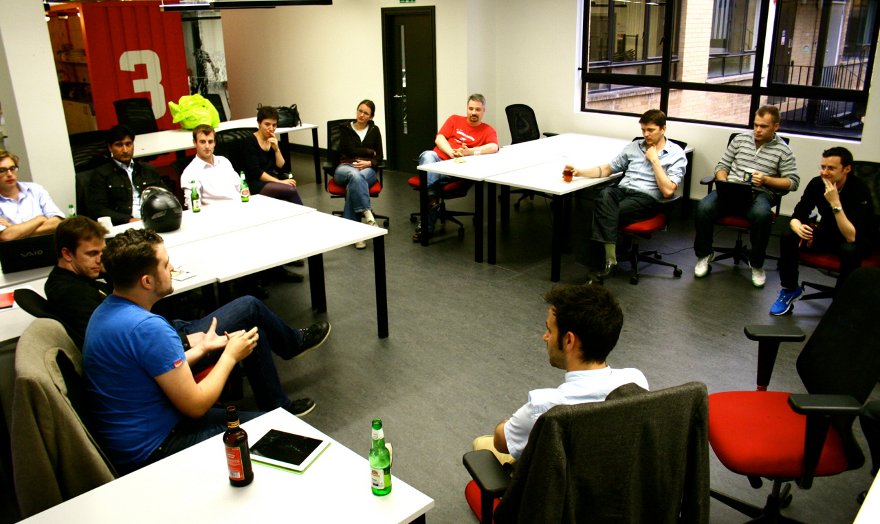
This week saw the most recent batch of start-ups announced by Bethnal Green Ventures (BGV), an organisation that seeks to take the most innovative young technology companies and help them make a tangible impact on the things that matter. Among the ten young thrusters for the summer 2013 programme are a peer-to-peer energy trading network that bypasses both the National Grid and the might of the big electricity companies; a programme to facilitate more meaningful community engagement in the process of urban planning; a game that helps users understand how to deal with panic attacks; and a tool to enable hard-to-reach groups (ethnic minorities, the elderly, the poor, and women, interestingly) to better interact with new technologies.
“We think that technology is going to play an increasingly bigger role in the implementation of social and environmental change,” explains Lily Ash Sakula, one of the Partners at Bethnal Green Ventures. “We believe this will come from the two or three person start-ups more than from governments or big corporates because sometimes it takes somebody from outside the existing systems to be able to look at things critically.”
Founded by Paul Miller of School of Everything fame, Bethnal Green Ventures originally started life six years ago as Social Innovation Camp, a series of hackathons that paired up technological innovators with others involved, as Lily puts it, “at the sharp end of social change”. Despite some successes, the difficulty they found was that, after the initial energy and excitement of the hackathon, those involved would have to return to their day jobs and the momentum would be lost.
Hence the idea for an incubator programme, which would help the best of these ideas come to fruition. So last summer, with money from NESTA (the National Endowment for Science, Technology and the Arts), BGV were able to provide £15,000 of funding as well as three months of free shared office space and intensive mentoring for a first batch of six early stage companies. Mentors include a former COO at last.fm, the founder of Walkit.com, and the founder of Evrythng, but “at this early stage,” as Lily says, “peer groups can be the most important source of support and advice.”
It's about solving the problems that nobody else has thought about yet.
Ventures are selected on the basis of the strength of the team applying, even more than the idea itself. As Lily explains, “start-ups change all the time. If you're a good team you can pivot and manage those changes more easily.” The first batch included such success stories as Mastodon C, which uses algorithms to make cloud computing massively greener. Did you know that cloud computing is expected to produce CO2 equivalent emissions of 1,034 megatonnes (around 2% of global emissions) by 2020? It's easy to forget that every email we send has its own carbon footprint.
Another alumnus is the currently much-celebrated FairPhone. FairPhone started out as a campaign group, but they gradually realised that they would have more effect in changing the technology industries by actually demonstrating what could be done themselves. Formally founded as a social enterprise in January 2013, their aim is to create the first mobile phone in the world that is 'fair' at every stage of the production and supply chains. Their first device has already received over 10,000 pre-orders. However, it should be pointed out that this will not be 100% 'fair' – that figure remains, at this stage, a promise of a potential future.
Funding for Bethnal Green Ventures now comes from a variety of sources, including the Cabinet Office and the Nominet Trust, guaranteed for the next four years, and BGV take 6% of the shares in each company they support in order to make the operation self-sustaining in line with NESTA's overall investment strategy.
Whatever one's view on the likelihood of an imminent catch-all tech-salvation, or the idea of investing money from a publicly instituted endowment into profit-making start-up ventures, if the future is to be shaped by technocratic innovation, then organisations like Bethnal Green Ventures are most likely to ensure that this is for the better. “We're not trying to replace the NHS or create new public services,” says Lily. “It's about plugging gaps, and trying to solve the problems that nobody else has thought about yet.”
You can check out what the current batch of ventures have been up to at the next Demo Day on 19th September 2013.
www.bethnalgreenventures.com
FRIXO. http://www.frixo.com/

Add new comment